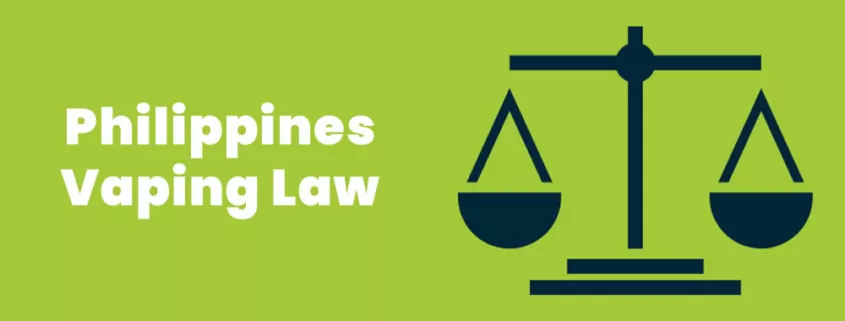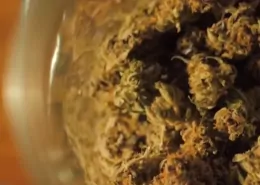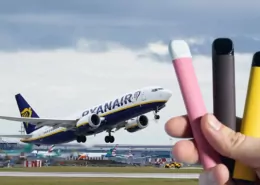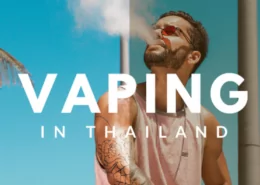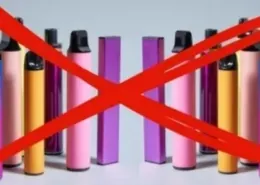Philippines Vaping Laws: Navigating the Legal Landscape
Welcome to our in-depth guide on Philippines Vaping Laws! Vaping has become a popular alternative to traditional tobacco smoking worldwide, and the Philippines is no exception. However, it’s crucial to be aware of the legal landscape surrounding vaping in the country. This article will provide you with everything you need to know about the laws, regulations, and restrictions related to vaping in the Philippines. So, let’s dive right in!
Vaping in the Philippines gained traction in the early 2010s as the global vaping industry expanded. The increased availability of e-cigarettes and vaping devices, along with the perception of reduced health risks compared to smoking, contributed to its rapid growth. Vaping quickly became a popular alternative, particularly among younger generations.
As vaping became more widespread, the Philippine government recognized the need for regulations. Early attempts to regulate vaping were inconsistent, with various local government units implementing their own rules. This lack of cohesive regulation created confusion for both consumers and businesses.
Philippines Vaping Laws
To ensure you’re vaping responsibly and legally in the Philippines, it’s essential to understand the country’s vaping laws. This section will cover the basics of these regulations.
A Brief History of Vaping Legislation in the Philippines
The Philippines initially took a relatively open approach to vaping. However, in recent years, the government has introduced stricter regulations to control the industry. Here’s a brief timeline of the legislation:
- 2013: The Food and Drug Administration (FDA) issues an advisory on e-cigarettes, warning against their potential health risks.
- 2014: The Department of Health (DOH) declares e-cigarettes and vapes as new tobacco products.
- 2019: President Rodrigo Duterte bans the importation, distribution, and sale of unregistered e-cigarettes and vapes.
- 2020: The Tobacco Regulation Act is amended, imposing stricter regulations on vaping products.
The Regulation for E-cigarettes and Vaping Devices
In response to the growing need for clear vaping regulations, President Rodrigo Duterte signed Executive Order No. 106 in February 2020, which established comprehensive rules for the sale, distribution, and use of electronic nicotine and non-nicotine delivery systems (ENDS/ENNDS) or e-cigarettes and vaping devices. This order aimed to protect public health and balance the interests of consumers, businesses, and the general public.
Age Restrictions and Advertising Rules
Under current Philippine vaping laws, it is illegal to sell or distribute e-cigarettes, vape devices, and accessories to individuals under 21 years old. Additionally, all advertising, promotions, and sponsorships for these products are prohibited. This restriction aims to minimize the appeal of vaping to minors and prevent the initiation of nicotine addiction among young people.
Sale and Distribution Regulations
Vaping products can only be sold in registered and licensed establishments, ensuring that consumers purchase from reputable sources. Additionally, online sales of e-cigarettes and vaping devices are prohibited, making it harder for underage individuals to access these products.
Public Vaping and Designated Areas
Public vaping is banned in places where smoking is also prohibited, such as schools, hospitals, and government offices. However, establishments may designate specific areas for vaping, provided that they meet the requirements set by the government. This ensures that non-vapers are not exposed to second-hand vapor.
Compliance and Enforcement
Several government agencies, including the Department of Health (DOH) and the Food and Drug Administration (FDA), are responsible for implementing and enforcing vaping regulations. These agencies work together to monitor compliance, conduct inspections, and issue penalties for violations.
Violators of the Philippines vaping laws can face penalties ranging from fines to imprisonment. Fines depend on the severity of the violation and can range from PHP 5,000 to PHP 100,000. Business owners who sell to minors or violate advertising rules may face temporary or permanent revocation of their licenses. In more severe cases, imprisonment may be imposed for up to six months.
Navigating Vaping Restrictions: Dos and Don’ts
Now that you know the basics of Philippines Vaping Laws, let’s delve into some practical tips to help you navigate the restrictions and enjoy vaping safely and responsibly.
Dos
- Do vape only in designated vaping areas.
- Do purchase vaping products from registered and licensed retailers.
- Do respect the minimum age requirement of 21 years.
Don’ts
- Don’t vape in public places that aren’t designated vaping areas.
- Don’t sell or purchase unregistered vaping products.
- Don’t advertise or promote vaping products online.
Philippines vs. Other Countries
While the Philippines has established regulations to control the use and sale of e-cigarettes and vaping devices, other countries have taken different approaches. Some nations, like Australia and Brazil, have imposed strict bans on e-cigarettes and vaping products, while others, such as the United States and the United Kingdom, have adopted more lenient regulations.
Frequently Asked Questions
To help you better understand the legal landscape, we’ve compiled a list of frequently asked questions about Philippines Vaping Laws and their answers.
Is vaping legal in the Philippines?
Yes, vaping is legal in the Philippines, but it is subject to strict regulations and restrictions.
What is the legal age for vaping in the Philippines?
The legal age for purchasing and using vaping products in the Philippines is 21 years old.
Can I vape in public places in the Philippines?
Vaping in public places is restricted to designated vaping areas. It is prohibited in other public spaces.
Are flavored e-liquids allowed in the Philippines?
Yes, flavored e-liquids are allowed in the Philippines, as long as they meet FDA regulations.
Can I buy vaping products online in the Philippines?
Online sales and promotions of vaping products are prohibited in the Philippines. It’s best to purchase your vaping products from registered and licensed retailers in person.
Are there any penalties for violating Philippines Vaping Laws?
Yes, there are penalties for violating Philippines Vaping Laws, which may include fines and imprisonment, depending on the severity of the violation.
The Future of Vaping Regulations in the Philippines
As the vaping industry continues to evolve, it is likely that the Philippine government will need to adjust its regulations to keep pace. Future changes may include stricter rules on product safety and quality, as well as additional efforts to curb youth vaping. The government may also look to international best practices for guidance in developing and refining its policies.
Be a Responsible Vaper
In addition to understanding and complying with Philippines Vaping Laws, it’s essential to practice good vaping etiquette when enjoying your vaping experience. Here are some tips to help you be a responsible vaper:
- Respect designated vaping areas: Always vape in designated areas and avoid vaping in places where it is prohibited.
- Be considerate of others: Be aware of your surroundings and avoid vaping around non-smokers and children.
- Dispose of waste responsibly: Properly dispose of used vaping products and e-liquid bottles to keep the environment clean.
A Word on Traveling with Vaping Devices
If you’re planning to travel to the Philippines with your vaping devices, be aware of the country’s regulations and restrictions. Here are a few tips for a hassle-free trip:
- Pack your vaping gear responsibly: Store your devices, e-liquids, and accessories in a secure and organized manner to avoid any issues during security checks.
- Know the airline’s policies: Check with your airline regarding their rules on carrying vaping devices and e-liquids.
- Familiarize yourself with local laws: Make sure to research Philippines Vaping Laws before your trip to ensure you’re in compliance.
Conclusion
Understanding Philippines Vaping Laws is crucial for a safe and enjoyable vaping experience in the country. By familiarizing yourself with the regulations, restrictions, and best practices, you can vape responsibly and respectfully. Remember, always be aware of your surroundings, respect the minimum age requirement, and purchase your vaping products from registered retailers. Happy vaping!
- Quebec Vaping Rates Surge, as Smoking Stays Stable - August 12, 2025
- Nicotine Pouches Illegal in Australia Without Prescription - August 12, 2025
- Vaping Trends in 2025: Flavors, Tech, and Regulations to Watch - August 12, 2025

